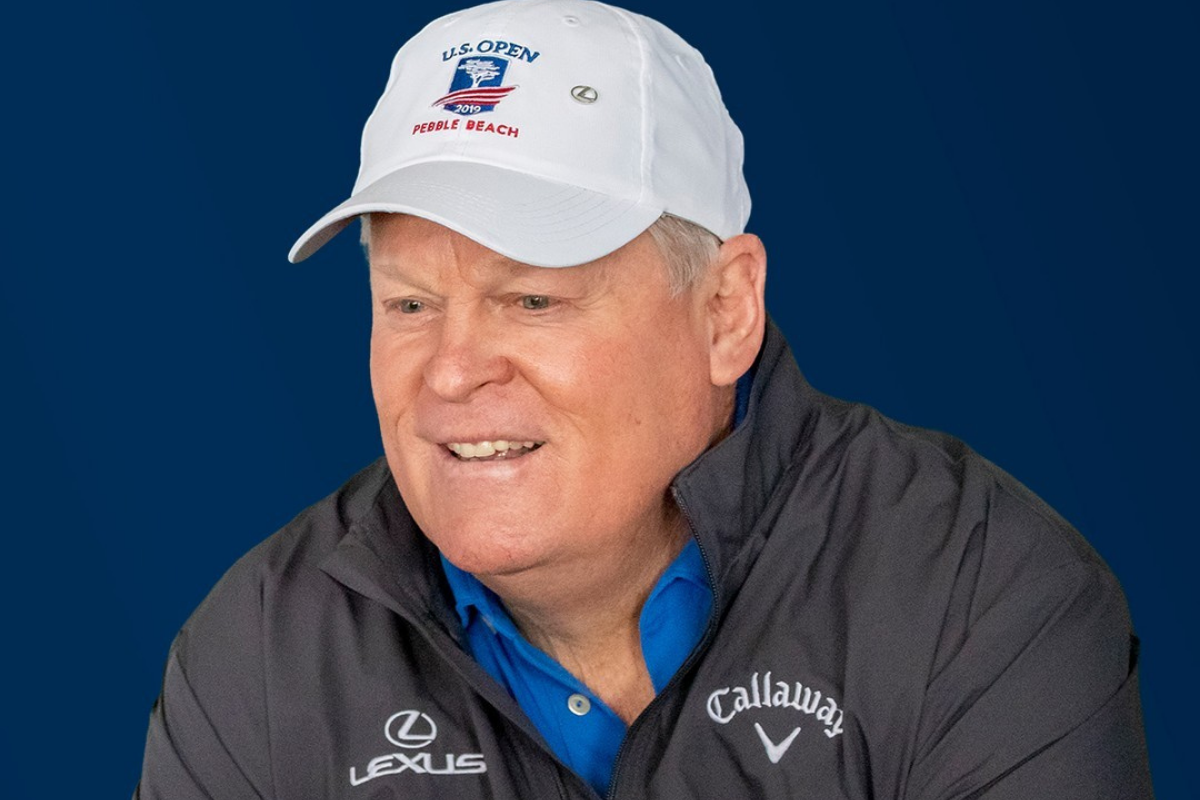
Imago
Johnny Miller Credit: Instagram

Imago
Johnny Miller Credit: Instagram
Johnny Miller’s name still echoes through the halls of golf history, especially at a place like Oakmont Country Club—where legends are either crowned or crushed. In 1973, Miller famously fired a record-setting 63 in the final round of the U.S. Open at Oakmont, an achievement that not only earned him the championship but cemented his legacy as one of the purest ball-strikers the game has ever seen. But that round was just one chapter in a storied career. Over the span of two decades, Miller captured 25 PGA Tour titles, including two majors—the 1973 U.S. Open and the 1976 Open Championship at Royal Birkdale. He was the PGA Tour’s leading money winner in 1974, the same year he won eight events, and was named PGA Player of the Year. Known for his fearless iron play and clinical precision, he spent 24 consecutive weeks ranked No. 2 in the McCormack World Golf Rankings during the pre-OWGR era and was eventually inducted into the World Golf Hall of Fame in 1998. More than five decades after his Oakmont triumph, as the club once again hosts the U.S. Open in 2025, Miller returns to the limelight—not as a competitor this time, but as a revered guest and living reminder of what once made this course so fearsome and magical. NBC’s broadcast featured Miller recounting that career-defining Sunday, while the USGA scheduled him alongside Jack Nicklaus for a nostalgic live segment on-site. So, who is Johnny Miller?
Watch What’s Trending Now!
From San Francisco kid to teenage phenom
Born John Laurence Miller on April 29, 1947, in San Francisco, California, he was raised just minutes from Olympic Club—where, as fate would have it, he’d tee it up in the 1966 U.S. Open as a 19-year-old amateur. He’d go on to tie for eighth, the low amateur that year, and it earned him a ticket to the Masters. Golf was in his DNA early on, and he never took the game lightly. Raised in a devout Mormon household, Miller’s discipline and work ethic were evident from his junior days. By 16, he had already won the U.S. Junior Amateur and shortly after enrolled at Brigham Young University, where he played collegiate golf before turning pro in 1969.
His upbringing was grounded in family values and competition. A father to six children and grandfather many times over, Miller often credits his family’s support as a pillar of his success. Despite the glare of the professional spotlight, he remained rooted in faith and family life, even as his career skyrocketed.
A career etched in ball-striking brilliance
Johnny Miller didn’t just win tournaments; he dismantled fields. In a professional career that saw him collect 25 PGA Tour titles, including two majors, Miller became known for his razor-sharp iron play and unflinching confidence. His masterpiece came at Oakmont in the 1973 U.S. Open, where he began Sunday six shots behind and closed with an 8-under 63—the lowest final round to win a major at the time. The performance became one of the most iconic in golf history. Miller hit all 18 greens in regulation and needed just 29 putts.
🏆🇺🇸🎙️ Johnny Miller is back in the booth pic.twitter.com/pGXCbXskTb
— NUCLR GOLF (@NUCLRGOLF) June 13, 2025
A few years later, he would go on to win the 1976 Open Championship at Royal Birkdale, proving that his success wasn’t limited to American soil. His career reached a peak in 1974 when he won eight events in a single season, earning PGA Player of the Year and topping the money list.
Known for his candor on and off the course, Miller was never one to sugarcoat the moment. One of his most famous lines—about choking under pressure—later became a defining trait of his TV persona. But his playing legacy went beyond quotable moments. He was inducted into the World Golf Hall of Fame in 1998 and remains universally respected as one of the greatest iron players in golf history.
Life beyond the tour and a return to Oakmont
When he stepped away from full-time competition in the late 1980s, Miller wasn’t done with the game. He transitioned seamlessly into broadcasting, joining NBC Sports in 1990. Over the next 29 years, Miller redefined golf commentary with a refreshingly honest approach. Unlike many polished voices in the booth, Miller called it as he saw it—sometimes brutally so. That style drew criticism from thin-skinned players but endeared him to fans who appreciated the unvarnished insight.
Miller stepped away from the NBC mic in 2019, but he never disappeared from the game. He remained involved in golf course design, with more than 30 course projects to his name, and helped foster junior golf through the Johnny Miller Champ Foundation. He also received the USGA’s prestigious Bob Jones Award in 2023, the association’s highest honor for character and sportsmanship.
Fast forward to June 2025, and Miller found himself back in the familiar surroundings of Oakmont. Not as a competitor this time, but as part of the championship’s living lore. Alongside fellow great Jack Nicklaus, he joined a USGA-hosted tribute at Oakmont to reflect on his historic round 52 years ago. NBC’s coverage showcased Miller walking the fairways and sharing tales from that record-breaking Sunday, his insights still sharp as ever. For the younger generation of players battling Oakmont’s teeth in 2025, it served as a reminder: this course doesn’t just test your swing, it tests your soul—and no one passed that test quite like Johnny Miller.
Johnny Miller’s story is more than just a tale of major championships and legendary rounds. It’s about integrity, boldness, and a deep love for a game that doesn’t hand out praise easily. His ball-striking was a work of art. His commentary, a shot of honesty in an often diplomatic sport. And now, in his late 70s, he continues to stand as one of golf’s true originals.


